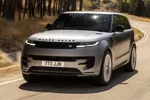Up to half of UK car dealerships will close by 2025, according to respondents to KPMG’s Global Automotive Executive Survey 2018.
A bleak future was mapped out by the survey’s 907 respondents, who occupy position of chief executive, president, chairman or C-level executive, as 75% said that between 20% to 50% of the brick-and-mortar automotive retail sector could disappear in just seven years.
Many felt that the shift to online would spark a dramatic shift in the make-up of the car retail sector in the coming years, with the evoltution of the vehicle ownership model and data security concerns also among consumers key concerns.
Justin Benson, UK Head of Automotive at KPMG, said: “In the UK, our findings are clear on one thing, there are more significant disruptors to the automotive sector than Brexit.
“Electric vehicles, autonomous vehicles and Mobility as a Service (MaaS) are going to drive change in the automotive sector for the foreseeable future.
“New business structures and new economic models are on the horizon, driven by these disruptors and the associated new technology.
“It’s an exciting but uncertain time for the industry. Whilst our report highlights concerns in some of its conclusions, it also helps chart a path to future success.”
Responses to KPMG’s survey were drawn from business leaders classed as upstream players (product-driven), including automakers and suppliers, and downstream players (service-driven), including dealers, financial services providers, rental companies, mobility services providers as well as information and communication technology (ICT) companies.
Warning signs for 'physical retailers'
Benson said: “The majority of UK automotive executives are convinced that the only means for dealers to survive is by restructuring into a service factory or a used car hub in the future.
“This is certainly a warning sign for physical retailers and presents a need to rethink retail concepts and business models, particularly with customers purchasing more of their goods and services at the touch of a button.”
Signs that the automotive sector is set to change can be seen in numerous car store openings in recent years and the growth of manufacturer-backed online new car retail portals.
This week AM reported that Rockar had partnered with Next to bring car retail into the high street proper with a partnership which will start at Manchester’s Arndale Centre but could extend into more of the retail giant’s 500 UK stores.
Simon Dixon, founder of Rockar, said that the cost of property for both car retailers and high street retail operators had meant that such partnerships could become more prevalent in the years to come.
KPMG said that among the key issues influencing the car retail space was also the changing shape of car ownership.
With millions of consumers taking advantage of financing options such as contract hire and personal contract plans (PCP), 61% of UK automotive executives believe that issues around vehicle financing may become a concern due to lower residual values.
Benson said: “We live in the age of credit, which is often convenient for those who want to make big purchases and spread the cost out over a period of time.
“However, existing credit arrangements for vehicles taken out over the past couple of years could cause additional risks for credit companies.
“This is particularly true if residual values fall further in the short term and people are handing their keys back when the residual value of the vehicle is lower than the PCP contract value.”
The findings of KPMG’s Global Automotive Executive Survey 2018 also revealed that 63% of UK automotive executives believe that by 2030 the global share of vehicles manufactured in Western Europe will drop significantly, to less than 5%.
“Whilst it sounds dire, the truth is that sustainable growth can only be generated in Asia, based on current market forecasts, and this is reflected by the opinions of UK automotive executives, and Western Europe is home to numerous premium brands.
“So European carmakers need to make use of the technologies offered by Industry 4.0, the Internet of things; and data analytics to take advantage of opportunities to manage costs and continue to be globally competitive,” said Benson.
Benson added that data ownership would also become and increasingly sensitive issue which could affect the fortunes of car retailers.
He said: “The question of who owns the data generated by vehicles and consumers on the go is one that is yet to be answered.
“What is clear is that consumers predominantly only trust themselves, and with data breaches and hacks making headlines in recent years, who can blame them? What is interesting, however, is that almost one in three executives believe that car manufacturers will be the data guardians.”
As the shift towards a digital future progresses, many automotive companies have already started capitalising on opportunities by providing digital services, as well as selling cars.
Which is why 75% of UK automotive executives think that data is going to be the fuel for the future business model of automotive companies, as the shift towards an autonomous vehicle future accelerates, KPMG said.
Dealer visits on the rise
Sue Robinson, director of the National Franchised Dealer Association (NFDA), said that notions that the end of the car dealership was on the horizon were way off the mark.
She said that recent analysis carried out by the ICDP had found that more consumers' visits to UK car dealerships reached a five-year high in 2017.
 “Figures from the ICDP show that averages for the number of car dealerships visited as well as the total number of dealer visits are higher than they have been over the past five years," said Robinson.
“Figures from the ICDP show that averages for the number of car dealerships visited as well as the total number of dealer visits are higher than they have been over the past five years," said Robinson.
“The automotive industry is resilient and capable of adapting to changes and physical dealerships are and will remain a central part of the car selling process. Although a strong online presence is essential in today’s marketplace, showrooms continue to play a key role, particularly in closing a sale and retaining customers”.
James Hind, chief executive of carwow, was keen to comment on KPMG's survey, stating that "a period of significant change" had already prompted changes to business structures and economic models in many areas of the car retail industry.
Hind added: “The growth of carwow and other online car buying services are evidence of the shift in buying behaviours. However, there is definitely a place for dealerships in the future, even if the forecourts will look a little different to today.
“A car is a high value purchase and many buyers still want to be able to touch, see, drive a new car before they commit. What has changed is that rather than visit lots of showrooms, they do their research on the car they want to buy, and the dealer they want to buy from, then most choose to visit just one showroom as a last confirmation that they’re making the right choice for them."
Hind said that, ultimately, consumers will dictate the shape of this industry in the long run, adding that the dealers that adapt quickest will be the most "match fit" to face future challenges.















Jon - 17/04/2018 12:48
I have asked this many times - why are dealerships not merging with one another more. I see Vertu and Lookers as perfect merger contenders. The savings would be huge given they are co-located in so many areas. From a shareholder perspective, the decision not to look for mergers reflects management priorities rather than shareholder returns.